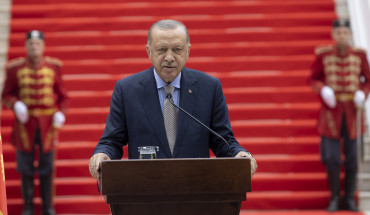On Dec. 8, President Bashar al-Assad fled Syria, bringing an end to nearly 54 years of his family’s rule and sending millions of Syrians at home and abroad into a state of euphoria and relief. Over a dramatic 12 days, an armed opposition offensive that had begun west of Aleppo on Nov. 27 triggered the precipitous crumbling of regime front lines, one after the other. As rebels began to advance south, Syrians across the country began to rise up. By the night of Dec. 7, Assad’s defeat had been sealed.
The rapid disintegration of Assad’s regime came as a surprise to everyone. For years, the international community had written off any chance that Syrians’ demand for change would ever be realized, embracing instead the concept of a “frozen conflict” and gradually withdrawing attention and resources away from Syria policy. In 2023, most of the Arab world reembraced Assad, rewarding him with his seat back in the Arab League and granting him and his regime with high-profile public visits across the region.
Continue reading in Foreign Policy
Photo credit: Murat Sengul/Anadolu via Getty Images
The Middle East Institute (MEI) is an independent, non-partisan, non-for-profit, educational organization. It does not engage in advocacy and its scholars’ opinions are their own. MEI welcomes financial donations, but retains sole editorial control over its work and its publications reflect only the authors’ views. For a listing of MEI donors, please click here.












